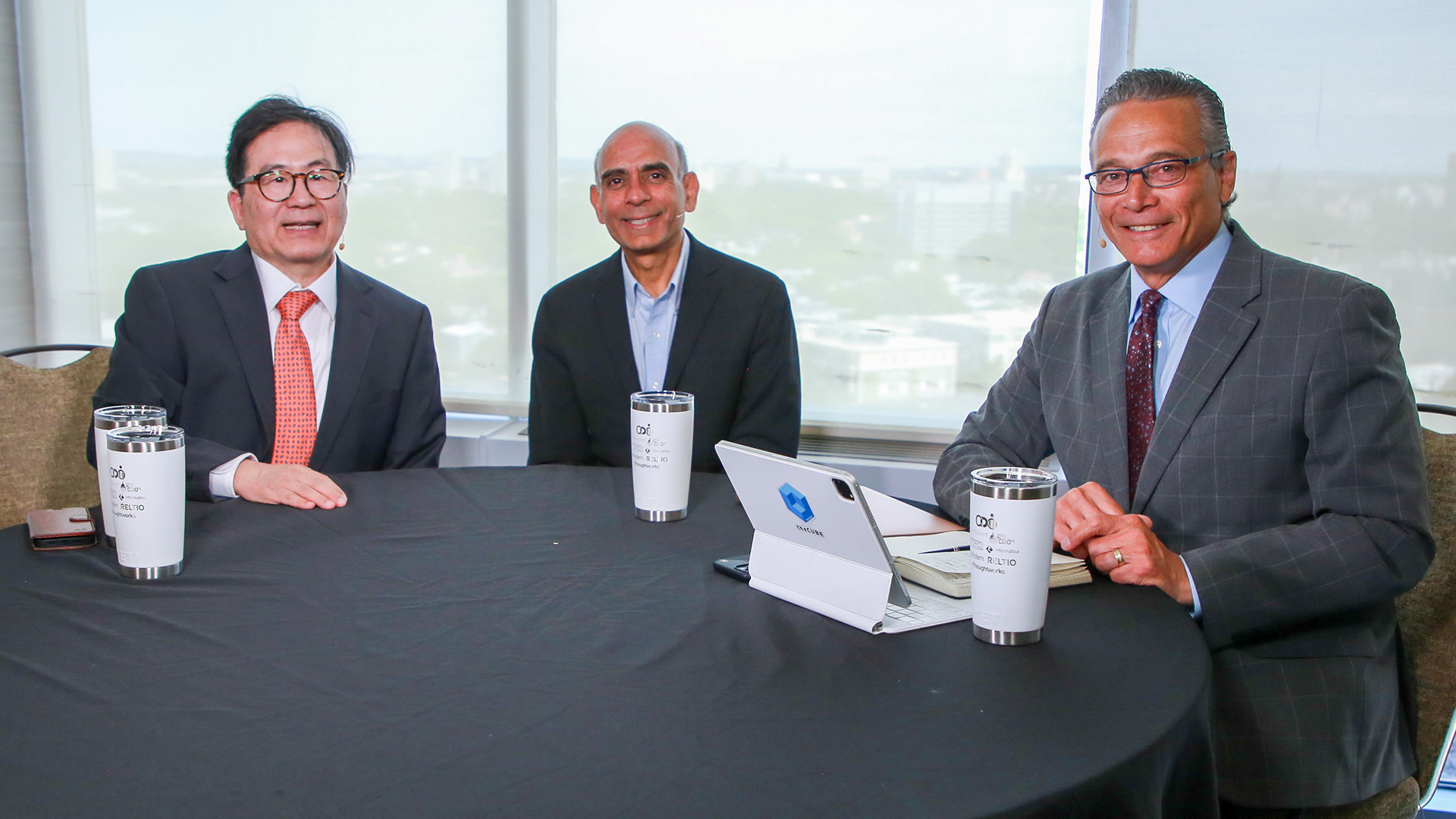 BIG DATA
BIG DATA
 BIG DATA
BIG DATA
 BIG DATA
BIG DATA
The chief data officer is increasingly taking center stage in the fast-paced realm of data management and artificial intelligence.
The CDO role has evolved from behind-the-scenes functions to key leadership positions, driving crucial data initiatives and ensuring top-notch data quality for informed decision-making. As AI becomes more embedded in business processes, the need for high-quality data has become vital for the success of expensive projects. This transformation is redefining how companies tackle data governance, analytics and AI integration, underscoring the indispensable role of chief data officers in today’s digital landscape, according to said Richard Wang (pictured, left), founder and director of CDO Education Inc. and founder and general chair of the annual CDOIQ Symposium.

TheCUBE on set at this week’s CDOIQ Symposium.
“There are some companies [where the] CDO reports to CIO. And fortunately, and unfortunately, they still report to CIO because it is the easiest place,” Wang said. “Some smart companies, CDO reports to CEO. Ultimately, this will sort out over time. Time is the best author. It would define a good story. In the end, I see it’s a pendulum starting from the CIO, going from centralization to decentralization and then back to recentralization … similar here for CDO.”
Wang spoke with theCUBE Research’s Dave Vellante (right) and Sanjeev Mohan (center) at the CDOIQ Symposium, during an exclusive broadcast on theCUBE, SiliconANGLE Media’s livestreaming studio. They discussed the evolution of chief data officers and the critical role they play in data quality, AI integration and driving data-centric business strategies.
The journey of the chief data officer role and the emphasis on data quality began in the late 1980s. Initially, data quality management was a niche concern, often sidelined due to budget constraints and a lack of understanding of its strategic importance. This changed when visionary leaders recognized data as a critical asset, according to Mohan.
“When you’re going to make that much investment, you better get good results,” he said. “Data quality has bubbled up to be the blocker in this space, but it’s not just data quality of yesteryears. It is data quality on unstructured data as well.”
The role of the chief data officer has evolved alongside these developments. Initially, focused on risk and governance, chief data officers today are also responsible for driving revenue through data-driven insights. The importance of data quality has been amplified with the advent of AI, where the success of AI projects hinges on the integrity and quality of data being used. Unstructured data, in particular, poses new challenges, requiring innovative approaches to ensure its quality and utility.
“This is a reason why data quality has become a complex topic now, because in structured data, we can say is it duplicate data, is it missing data, is a format correct, all of that metrics, but for unstructured, the metrics are undefined,” Mohan said.
The contemporary landscape of data leadership is marked by diverse roles and responsibilities. Chief data officers are now integral to both defensive and offensive data strategies, according to Wang. They ensure high-quality data for compliance and risk management while also leveraging data to generate business value. This dual role underscores the complexity and importance of the chief data officer position in modern organizations.
“There are actually two sides of CDO function,” Wang said. “One is called defensive side, producing high-quality data. There’s another offensive side [that] generate revenues. The moment you start to create some good data, the CEO would ask you to generate revenue. Thirty percent of company revenue could be on the shoulder of a CDO. It requires different kinds of CDOs with different kinds of skill sets.”
Here’s the complete video interview, part of SiliconANGLE’s and theCUBE Research’s coverage of the CDOIQ Symposium:
Support our mission to keep content open and free by engaging with theCUBE community. Join theCUBE’s Alumni Trust Network, where technology leaders connect, share intelligence and create opportunities.
Founded by tech visionaries John Furrier and Dave Vellante, SiliconANGLE Media has built a dynamic ecosystem of industry-leading digital media brands that reach 15+ million elite tech professionals. Our new proprietary theCUBE AI Video Cloud is breaking ground in audience interaction, leveraging theCUBEai.com neural network to help technology companies make data-driven decisions and stay at the forefront of industry conversations.